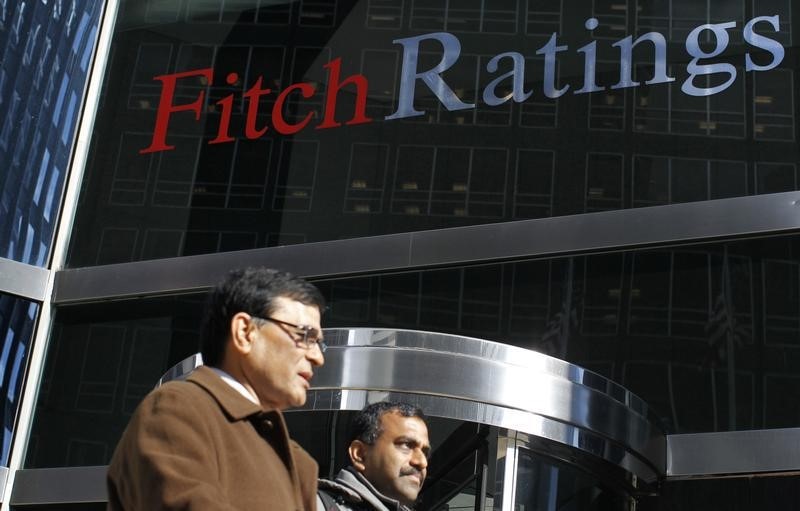By Andrey Ostroukh
MOSCOW (Reuters) - Russia's sovereign rating would be one notch higher than its current BBB- level if not for the latest round of U.S. sanctions, the head of Fitch Ratings Sovereigns group said.
Fitch revised its outlook on Russia's rating to positive from stable last week, less than two months after U.S. President Donald Trump signed new sanctions against Russia into law.
"Now the issue of sanctions clearly presents an uncertainty for us," Erich Arispe said in an interview in Moscow.
"According to our sovereign model, taking into account quantitative variables, Russia's rating would be BBB," Arispe said when asked what Russia's rating would be without new sanctions.
Fitch downgraded Russia's sovereign rating to BBB- from BBB in early 2015 when its economy slipped into a full-blown crisis as prices for oil, its key export, collapsed.
Russia's 2014 annexation of Crimea and support for pro-Russian rebels in eastern Ukraine also weighed on the economy as this prompted the West to impose economic and financial sanctions that limited Moscow's ability to borrow abroad.
Access to international debt may shrink further as the latest U.S. sanctions envisage possible restrictions on buying Russian debt.
Under the sanctions bill drafted to punish Russia for alleged meddling in U.S. elections in 2016, the Secretary of the Treasury shall submit a report describing in detail the potential effects of expanding sanctions to include sovereign debt and the full range of derivative products.
Arispe said Fitch, which will next review Russia's rating in March, would need to assess the possible fallout from restrictions on holding Russian debt for some institutions, considering the impact on the cost of borrowing.
"We will carefully analyze if there is a negative scenario, how authorities respond in terms of preserving stability."
For now, Fitch expects the already-imposed sanctions to remain in place for a long time and this would shape Russia's economic growth prospects, Arispe said.
Russia holds the same rating and outlook as Bulgaria, Indonesia and the Philippines. Low investment growth, difficult business environments and weak institutions are common factors in countries with BBB ratings, Arispe said.
Still, the latest revision of Russia's rating outlook to positive reflected improvements such as a more flexible rouble rate, the central bank's strong commitment to inflation targeting and the prudent fiscal strategy of the finance ministry, Fitch said in its report.
The Russian rouble is expected to average around 58 against the dollar in 2018 and in 2019 <RUB=>, given that prices for oil are forecast to average $52.5 this year and in 2018, climbing higher in 2019, Arispe said.
The challenge for Russia now is how to boost economic growth "without undermining improvements in macroeconomic stability" as Russia's potential growth of lower than 3 percent is below the average growth in its BBB-rated peers, Arispe said.
